Is there a toner for Rosacea that will support your sensitive skin? Do you even need it? In today’s world, it seems like everyone has a 10-step skincare routine with fancy skincare products, and that routine often includes toner. If you have sensitive skin, however, I want you to approach these products and extensive routines with caution.
If you want to add a toner to your skincare routine, here’s what you need to know to make sure you can support your sensitive skin.
-
Merida Essentials: Skincare for Sensitive Skin
$108.00 -
Shea and Squalane Moisturizer for Sensitive Skin
$45.00 — or subscribe to save up to 14% -
Tea Tree Oil Foaming Facial Cleanser
$24.00 — or subscribe to save up to 12%
Role of Toner in Skincare
First, it’s important to know what a toner is intended to do. Toner is meant mainly to remove dirt and make-up left behind after cleansing, exfoliate dead skin cells, balance the pH after cleansing, add moisture, and shrink pores.
The first two purposes require rubbing with a cloth or pad, which is a no-no for rosacea, so let’s set those aims aside. Restoring the skin pH with a toner isn’t strictly necessary. Skin pH can normalize on its own within an hour of cleansing, and even quicker if the cleanser is close to normal skin pH.
Adding moisture and shrinking pores can be accomplished by a serum and/or moisturizer. This means a toner is not uniquely useful on those fronts. The bottom line is that toner isn’t necessarily a good thing for rosacea. More importantly, it’s potential benefits can be provided by a serum or moisturizer that’s better for your rosacea-prone skin.
Recommendation: save some money and skip the toner if you have rosacea.
The Difference Between Toner and Serum
Toners and serums are typically used between cleansing and moisturizing. Both are typically water-based and thin. Serums are meant to be more concentrated and deliver a high percentage of active ingredients. Examples of active ingredients include salicylic acid, retinol, niacinamide, and vitamin C.
If both toner and serum are used, the toner is used before the serum is applied.
Ingredients to Avoid
Toner is notorious for using alcohol to achieve its goals, but this is a definite no-go ingredient for rosacea. Watch out for non-fatty alcohols on the ingredient list, which may appear as “alcohol denatured” or other forms such as benzyl alcohol.
These are not the same as fatty alcohols such as Cetearyl alcohol, cetyl alcohol, and stearyl alcohol (which are okay for rosacea), but these aren’t commonly found in toners anyway. Luckily, alcohol-free toners are easy to find these days.
Toner is a leave-on product, which elevates the irritation and allergy risk with some ingredients. Some common culprits include fragrance/parfum, ethylhexylglycerin, phenoxyethanol, and witch hazel.
How to Test a New Toner
If you do decide to try a new toner, proceed cautiously to minimize the chance of an unfortunate, days or weeks-long, whole-face reaction. For four to seven days, apply it only to a small area (the size of a quarter or less) of thicker skin (not around the eyes or lips). If redness or discomfort occurs, stop using it.
Here’s the patch test process for you to follow:
- Patch Test: Importance and how to do it.
- Observation Period: Monitor skin’s reaction over a few days.
- Consulting a Dermatologist: When to seek professional advice.
If the symptoms don’t subside within one week, or if they continue to worsen despite stopping the product, it’s time to call your dermatologist or primary care provider.
How to Incorporate Toner into Your Skincare Routine
A toner is applied after cleansing and before serum. Moisturizer is applied after toner and serum. Rubbing and scrubbing are not good for rosacea, so if you’re using toner, it should be patted on with clean bare hands. Here’s a quick process for you to follow:
- Cleansing: Before applying toner.
- Application Tips: How to apply toner for best results.
- Follow-Up Products: Moisturizers and treatments to use after toner.
My Personal Tips and Experiences
I scrubbed at my teenage acne with toner-soaked cotton balls as if the more it hurt the more good it would do. I now know better, but it was a different time then. It was a time before the internet and before consumers began to clamor for healthier products.
Access has never been easier to access good information about skincare and such a broad menu of product choices. That said, it is still a perilous world fraught with misleading marketing, risky ingredients, problem formulas, and irresponsible makers. The best advice I can give is:
Keep your skincare as simple as possible—using fewer products and ingredients minimizes your risk and is typically better for your budget.
Finally, make sure a product maker deserves your trust before giving them your hard-earned dollars—read their policies, read verified reviews, and send the company your questions before you buy.
Recommended Product: Tea Tree Oil Serum for Sensitive Skin
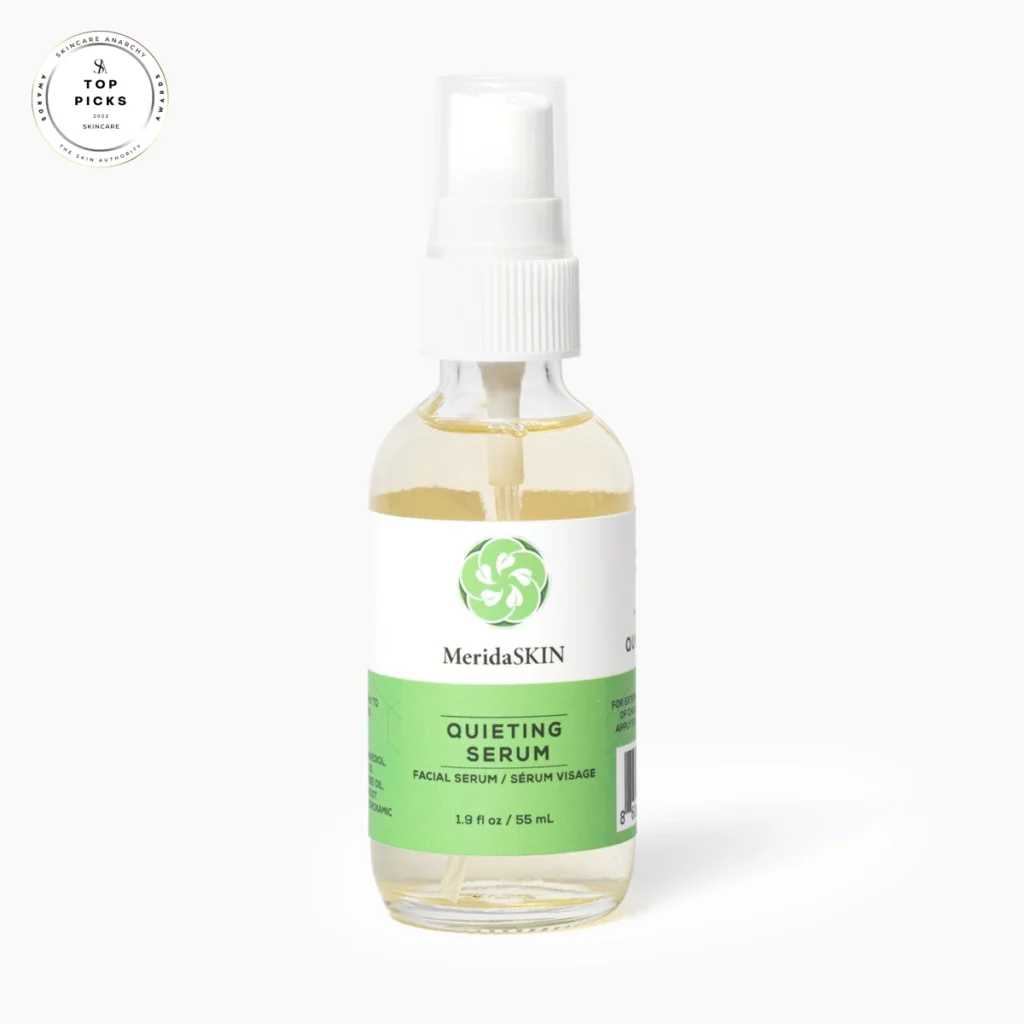
When it comes to rosacea, a good serum can do all the work in between the cleansing and moisturizing steps. It should deliver a high concentration of beneficial ingredients, at natural skin pH, to hydrate, soothe and promote a healthy balance of micro-organisms.
Tea Tree Oil Serum for Sensitive Skin by MeridaSKIN was developed by a rosacea-suffering clinician (me!). I created these products because I couldn’t find anything else on the market that was serving these vital functions. Its hero ingredients include tea tree oil, red sage root extract, and organic aloe vera juice.
Should You Use a Toner for Rosacea-Prone Skin?
Cleanser and moisturizer are skincare essentials for all skin, especially rosacea-prone skin. If chosen well, the toner and serum steps in between may not even be necessary. When choosing between a toner and a serum, if you do want to include this step, pick a serum targeted to deliver the active ingredients you value.
If you do opt for toner as well, then be sure to scrutinize the list of ingredients for common sources of irritation and allergy, and pat rather than rub it on.

Shannon L. Johnson NP-C
Founder & Formulator, MeridaSKIN
Shannon is a nurse practitioner, and much of her career has served vulnerable populations at a community health center. She holds degrees from the University of Pennsylvania and Simmons University, and completed post-graduate training at the University of Massachusetts Boston. She tackled the science of cosmetic formulating to solve her own skin struggle with rosacea. Shannon was born in Oregon, raised in Eastern Massachusetts and has passionate ties to the Pacific Northwest, New England, and the mid-Atlantic. She lives on Boston's North Shore with her husband, two kids and mischievous Wheaten Terrier. She and her family pass the seasons by playing in water (liquid and solid).

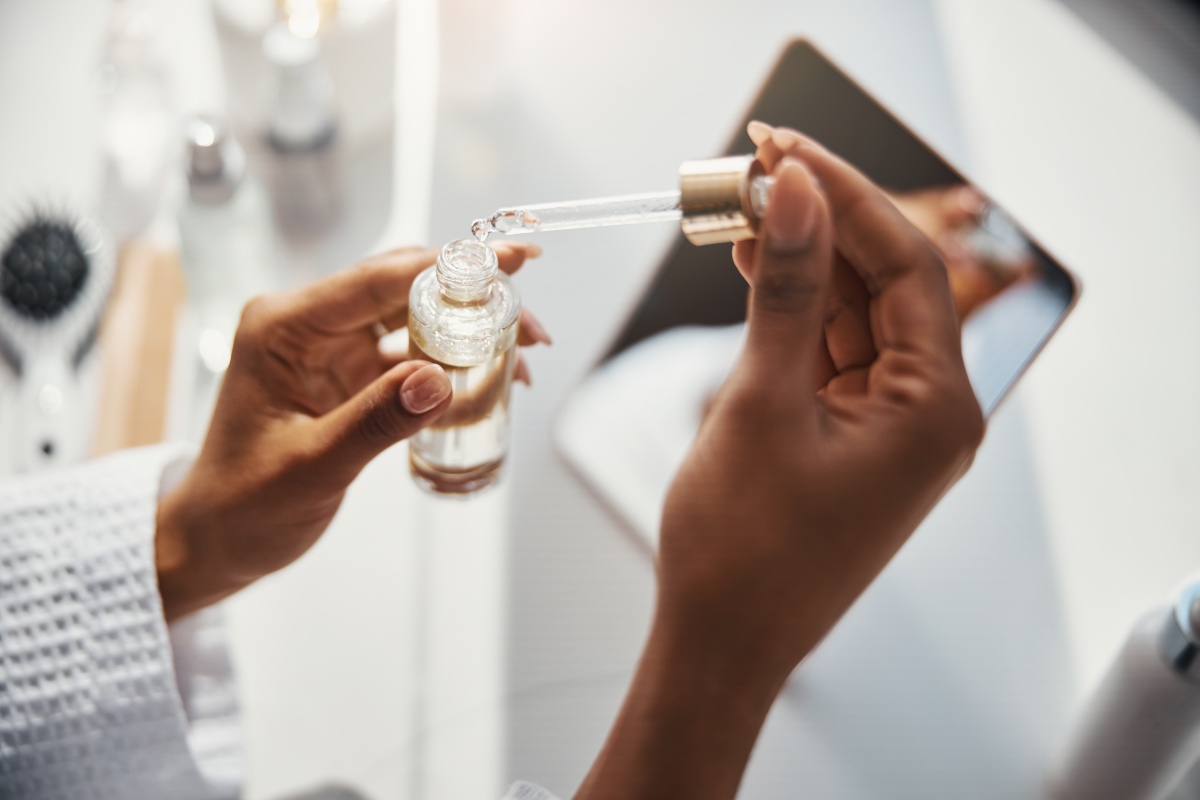
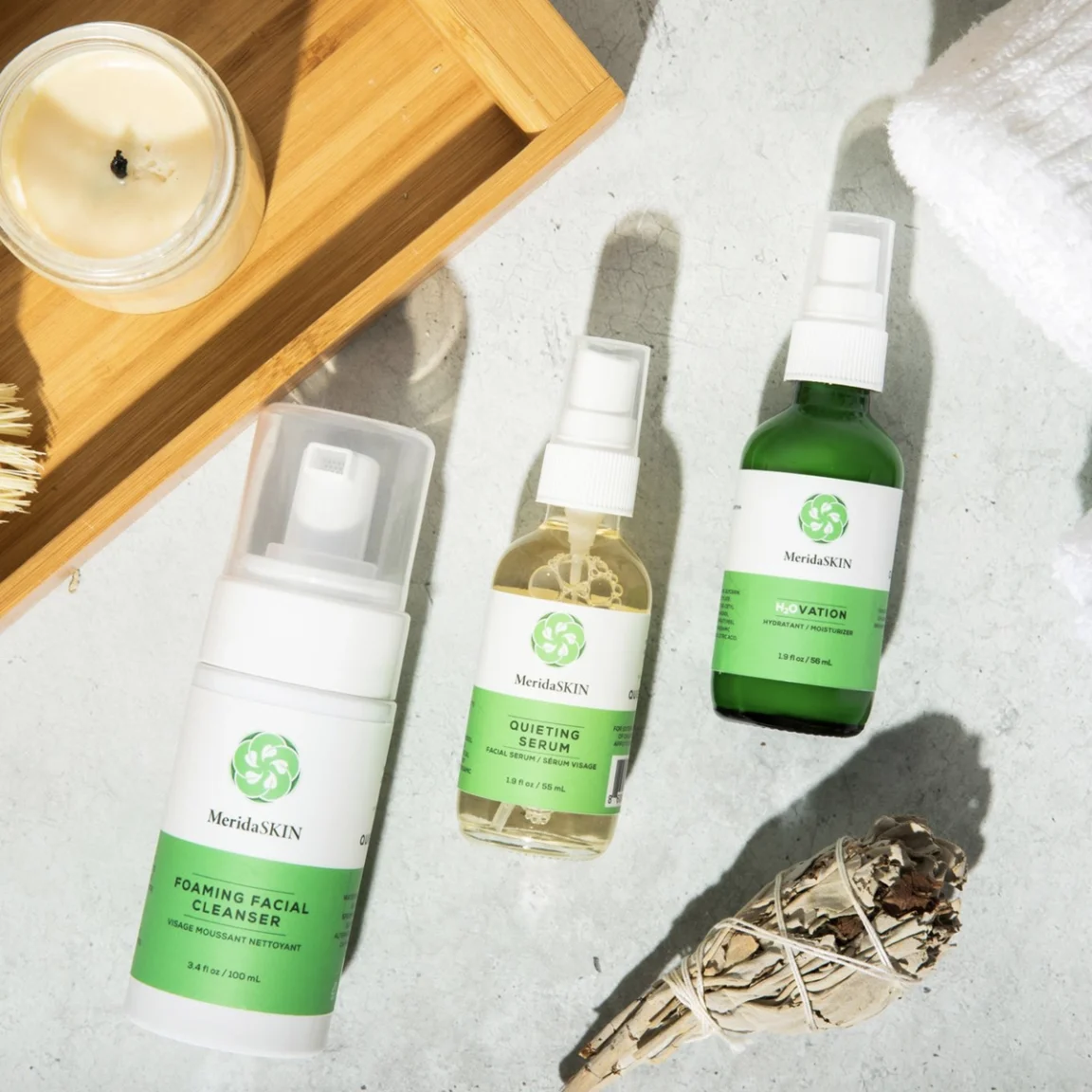
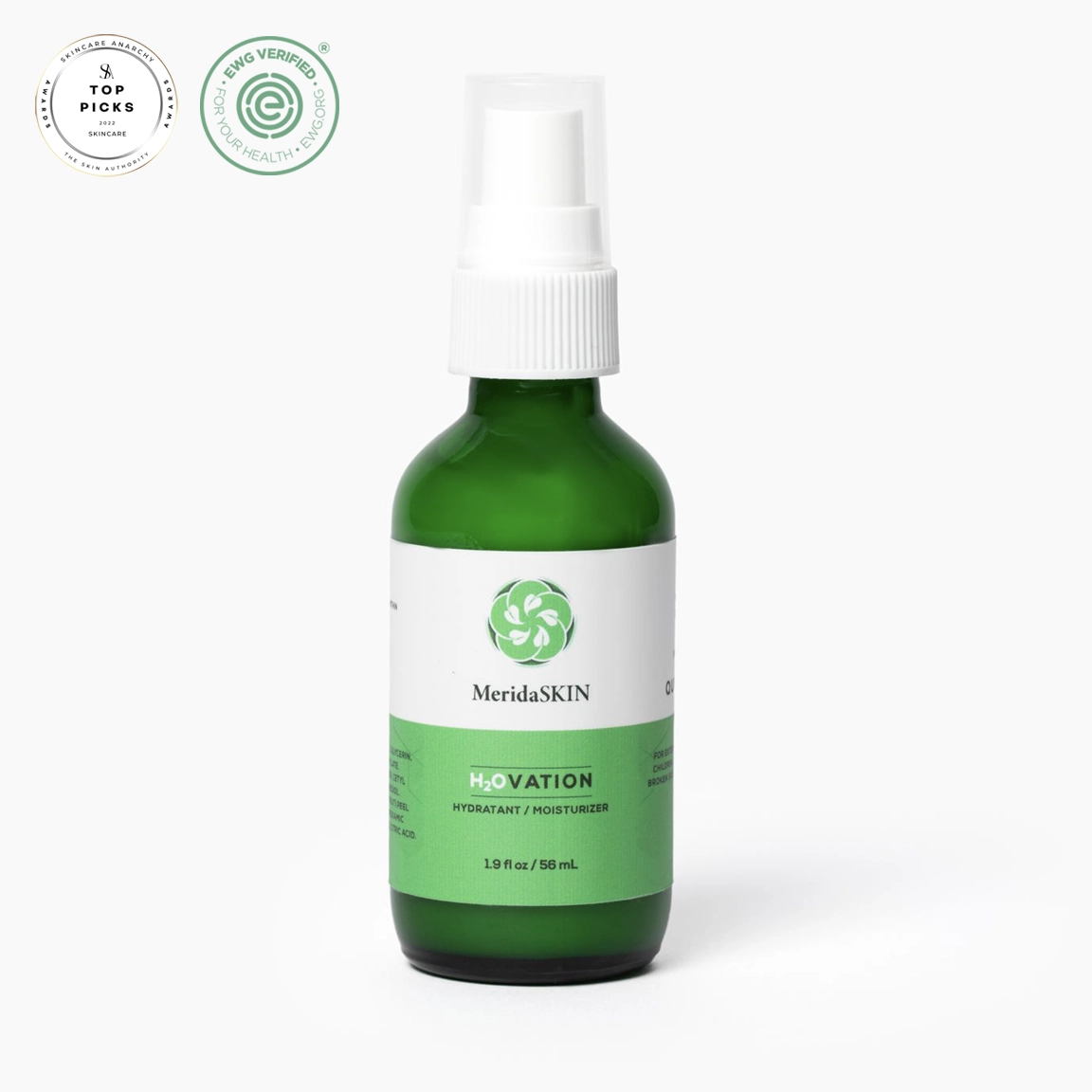
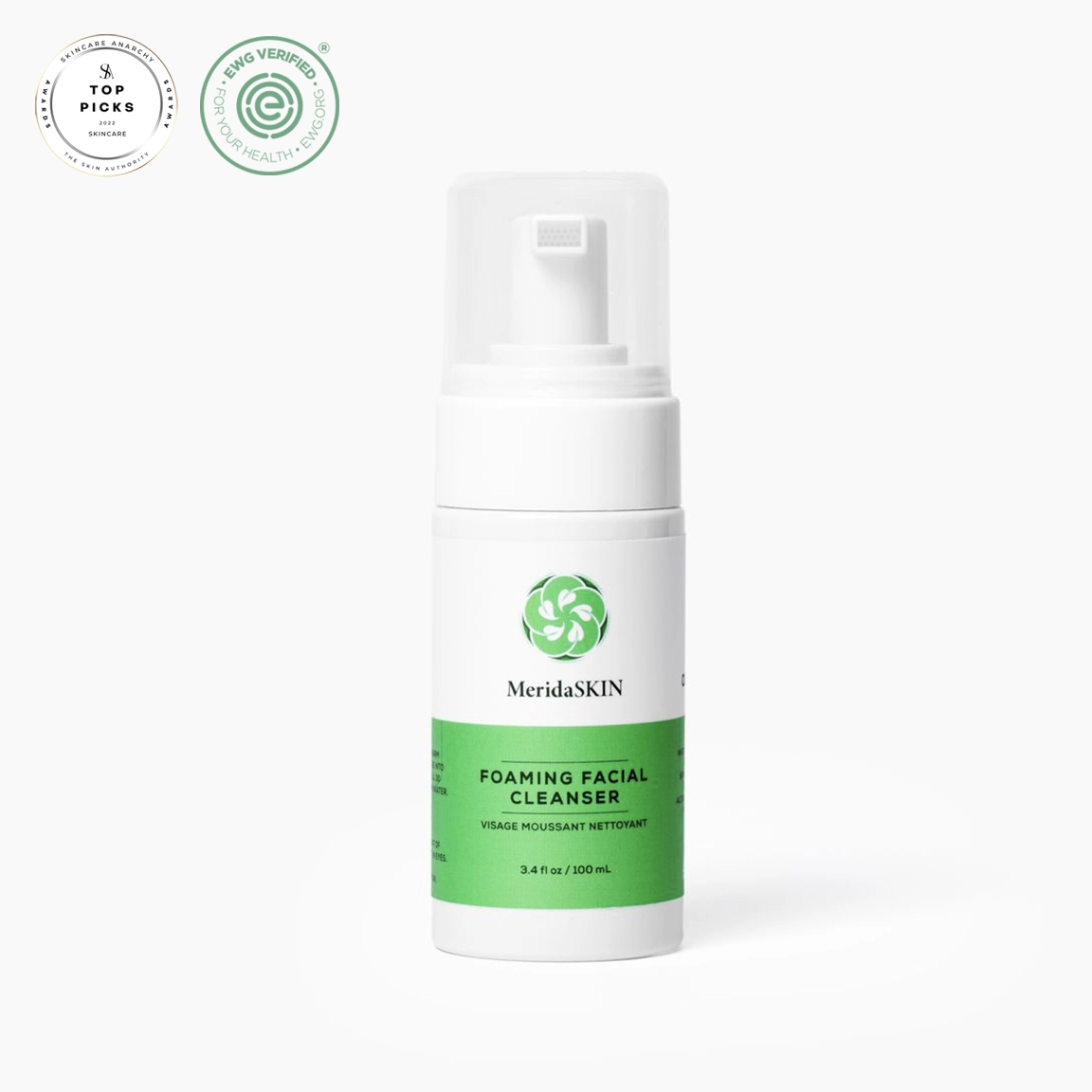
Recent Comments